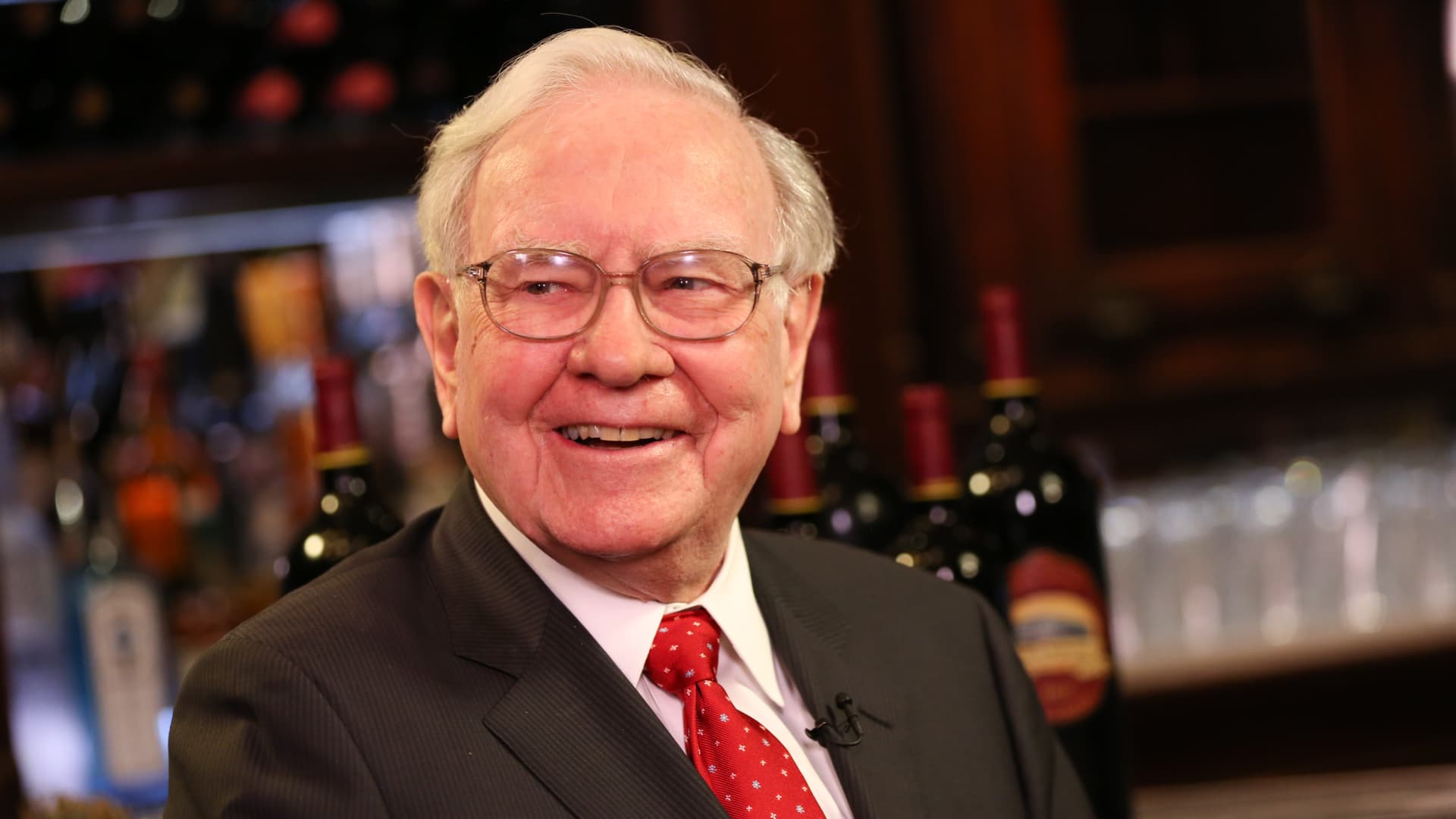Warren Buffett has a secret. In recent quarters, Berkshire Hathaway ‘s 13F has hinted at a position it’s building under confidential treatment. Clues in the company’s 10Q filings point many observers to an industrial name, with the stake approaching $5 billion. Combined with Buffett’s well-known preference for sturdy companies with deep moats, that’s prompted guesses like Lockheed Martin , AO Smith or Huntington Ingalls . CNBC decided to toss the question to the bots. We fed several leading AI models the same prompt, told them to ignore market chatter and to rely only on Berkshire’s filings and Buffett’s investing playbook. Then we pressed each for a specific name. Here’s what they said. To be clear, this isn’t about nailing the pick and crowning an AI investing champ (though that would be fun). It’s about seeing how different models reason through an investment thesis and arrive at a call. The prompt we used: For the past few quarters, Berkshire Hathaway’s 13F filings have disclosed a confidential holding. Using only information from Berkshire’s own filings (13Fs, 10Qs, 10Ks, etc.) and your knowledge of Warren Buffett’s investment strategy, make a strong, specific and well-reasoned guess as to what that holding is. Ignore speculation from market participants and news articles. ChatGPT thinks the secret holding is GE Aerospace . It picked up on that jump in Berkshire’s cost basis in the commercial and industrial space during the first half of the year. ChatGPT pointed to GE’s wide moat from its installed base and its long-duration cash flows, which are characteristics that fit a value investor’s taste: “Buffett loves durable, toll-like economics,” it wrote. GE YTD mountain GE Aerospace shares year to date ChatGPT called its confidence “moderate” and offered Deere and UPS as runner-up picks. It also ruled out financials, pointing out that while the cost basis for industrials rose, it fell for the financial bucket. Not so for Claude, which picked Chubb as the likely mystery name and Microsoft’s Copilot, which picked Visa . Claude pointed to Chubb’s strong financial position, its competitive moat, capable leadership and Buffett’s comfort with insurance. The problem: Berkshire already holds a sizable Chubb stake, to the tune of $8.2 billion as of its last 13F filing. Same with Visa, where Berkshire held nearly $3 billion in shares. Copilot reasoned that Visa reinforces its moat with each transaction, generates recurring cash flows and routinely posts around 30% return on equity. Interestingly, Copilot also claimed there’s “no public 13F line for Visa” even though it appears in Berkshire’s latest filing . V YTD mountain Visa shares year to date Perplexity stuck to the filings and landed in industrials. It called out the approximately $5 billion jump in Berkshire’s commercial and industrials cost basis in the first half and the lack of a new name among the top five disclosed holdings. From there, it argued the pattern fits a large, wide-moat blue chip accumulated under the radar. Its leading picks: Caterpillar and UPS — installed bases, durable moats and strong free cash flow. Perplexity also framed the dollar amount as a “core” build rather than a starter position, consistent with how Berkshire has used confidentiality before. CAT YTD mountain Caterpillar shares year to date Gemini focused on transportation. Using the same industrial-bucket clue and Berkshire’s past use of confidential treatment, it said the trail points to logistics and freight rail. It leaned on classic Buffett filters: wide moats, essential infrastructure, predictable cash flows and straightforward models as the reason to favor rails over other industrials. Gemini’s specific guesses: Union Pacific or CSX . Both, it argued, are long-duration compounding machines that Berkshire would plausibly accumulate quietly. Again, we’re not here to reinvent the wheel or crown an AI stock picker champion. The point is how they think. As for the mystery, investors will have to wait and find out when Berkshire lifts the veil.





